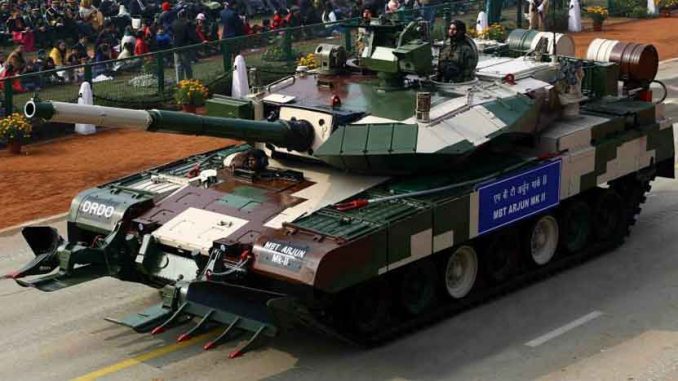
Global defense companies expect foreign investment in India’s defense industry to accelerate after the government eased direct investment restrictions in the sector.
India on Monday relaxed foreign-direct investment thresholds in the retail, defense and civil-aviation sectors among others.
It removed a condition that foreign companies must bring in state-of-the-art technology to hold stakes of more than 49% in local defense ventures. Foreign companies will now be permitted to own up 100% of companies in the defense sector after obtaining government approval.
The country is one of the world’s largest arms importers, a distinction that Prime Minister Narendra Modi seeks to change by expanding local arms production and giving preference to locally manufactured weapons in bidding contests while also making it easier for private companies to do business in the sector.
Pierre de Bausset, president of Airbus Group SE in India, on Tuesday said the new rules bring India in line with other countries, which have been able to attract foreign direct investment.
The defense industry is dominated by state-run companies that are plagued by quality issues and long delays in delivering equipment. As a result, India has become dependent on imports as it increased its military spending.
Persuading foreign companies to build more weapons in India could be a hard sell until the government starts making multibillion-dollar defense orders, companies and analysts say. Several recent defense orders have become stuck over bureaucratic delays, while allegations of corruption marred the granting of key defense contracts in recent years.
“This decision will now bring in real investments provided the Defense Ministry also speeds up the procurement process and issues big-ticket orders,” said Amber Dubey, head of aerospace and defense practice at KPMG in India.
The country also faces a shortage of trained factory workers for the aerospace and defense industry, according to analysts, which could slow the country’s plans to become a global weapons-manufacturing hub.
India is seeking to modernize its defense industry as it faces a well-armed and increasingly assertive China on one border and its longtime rival Pakistan on another.
India’s defense industry attracted $5.1 million in FDI in the nearly 16 years through the end of March, according to government data. Over the same period, the services sector and construction industry each attracted $51 billion and $24 billion, respectively. The computer software and hardware, telecommunications and automobile industries each attracted $21 billion, $18 billion and $15 billion, respectively.
The country imported 14% of globally traded arms in the four years through 2015, according to the Stockholm International Peace Research Institute. India’s domestic arms industry doesn’t produce competitive designed weapons, so must import them from abroad, the think tank said.
India is expected to become the world’s fourth-largest military spender after the U.S., China and the U.K. in 2016-2017, according to IHS Jane’s. The publisher expects the country’s defense budget to reach $64.8 billion by 2020, compared with $50.7 billion in the 2016-2017 financial year.
John Brosnan, managing director for India and Southeast Asia at BAE Systems PLC, said the easing of foreign investment rules would “encourage more rapid indigenization and investment.”
“With the right incentives and enablers, predictable decision-making timelines, productive partnerships between international original equipment manufacturers and Indian industry, and expansion of the existing talent pool amongst others, India can become an aerospace and defense manufacturing hub for the region and beyond,” he said in a statement.
Soon after coming to power in 2014, Mr. Modi’s government increased the foreign-investment limit in local joint defense ventures to 49% from 26%. But global manufacturers said at the time continued limits on FDI would slow the flow of capital and their ability to share intellectual property rights with an Indian partner without management control.
Source: Wall Street Journal

Leave a Reply